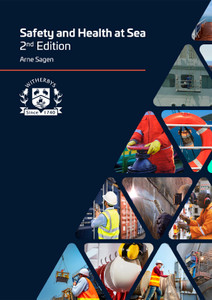
The International Code on Intact Stability, 2008 (2008 IS Code) presents mandatory and recommendatory stability criteria and other measures for ensuring the safe operation of ships, to minimize the risk to such ships, to the personnel on board and to the environment.
The 2020 Edition features:
- An update of the 2008 IS Code, including all amendments that will have entered into force on 1 January 2020
- minor additions and amendments to the mandatory part A of the Code
- amendments to the Code’s recommendatory part B, including substantial additions to chapter 2 on Recommended design criteria for certain types of ships and chapter 3 on Guidance in preparing stability information
- the provision of a new annex 3
- criteria based on the best state-of-the-art concepts available at the time they were developed; and influences on intact stability, as contained in the previous edition
- Explanatory Notes and the Unified Interpretations to the 2008 IS Code.
This publication should be of interest to maritime administrations, ship manufacturers, shipping companies, education institutes and others concerned with intact stability criteria.
Foreword
The International Code on Intact Stability, 2008 (2008 IS Code) was adopted by resolution MSC.267(85) on 4 December 2008 and came into effect on 1 July 2010 upon the entry into force of the respective amendments to the 1974 SOLAS Convention and 1988 Load Lines Protocol. The Code presents mandatory and recommendatory stability criteria and other measures for ensuring the safe operation of ships, to minimize the risk to such ships, to the personnel on board and to the environment.
Since its entry into force, the Code has been further amended by the following resolutions adopted by the Maritime Safety Committee:
.1 resolution MSC.319(89), containing amendments to part B of the Code, adopted on 20 May 2011 and taking effect on the same day;
.2 resolution MSC.398(95), containing amendments to part B of the Code, adopted on 5 June 2015 and taking effect on the same day;
.3 resolutions MSC.413(97) and MSC.414(97), containing amendments to part A of the Code, adopted on 25 November 2016 and expected to enter into force on 1 January 2020;
.4 resolution MSC.415(97), containing amendments to part B of the Code, adopted on 25 November 2016 and expected to enter into force on 1 January 2020; and
.5 resolutions MSC.443(99) and MSC.444(99), containing amendments to part A of the Code, adopted on 24 May 2018 and expected to enter into force on 1 January 2020.
This publication contains all the aforementioned amendments and, in addition, the Explanatory notes to the International Code on Intact Stability, 2008 (MSC.1/Circ.1281), intended to provide Administrations and the shipping industry with specific guidance to assist in the uniform interpretation and application of the intact stability requirements of the 2008 IS Code.
Also contained in this publication are the Unified Interpretations of the 2008 IS Code (MSC.1/Circ.1537/Rev.1) to facilitate global and consistent implementation of the requirements of the Code.
Foreword
International Code on Intact Stability, 2008
Explanatory Notes to the International Code on Intact Stability, 2008
A??s a specialized agency of the United Nations, IMO is the global standard-setting authority for the safety, security and environmental performance of international shipping. Its main role is to create a regulatory framework for the shipping industry that is fair and effective, universally adopted and universally implemented.
In other words, its role is to create a level playing-field so that ship operators cannot address their financial issues by simply cutting corners and compromising on safety, security and environmental performance. This approach also encourages innovation and efficiency.
Shipping is a truly international industry, and it can only operate effectively if the regulations and standards are themselves agreed, adopted and implemented on an international basis. And IMO is the forum at which this process takes place.
- Number of Pages:
- 162
- ISBN:
- 9789280117202
- Binding Format:
- Paperback
- Book Height:
- 210 mm
- Book Width:
- 150 mm
- Author:
International Maritime Organization
- Preview:
- Yes
- Published Date:
- January 2020
- Publication Date:
- January 2020






